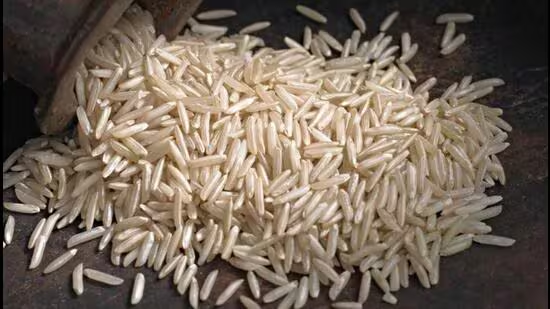Tags
Punjab: Rice millers hesitant to shell PR126 variety
By Gurpreet Singh Nibber
Punjab’s PR126 paddy variety faces skepticism from rice millers over low out-turn ratios and potential hybrid mixing, hindering its adoption despite support.

The short-duration paddy variety, PR126, which is projected as the solution to Punjab’s falling water table, is not finding favour with rice millers of the state who are apprehensive about its out-turn ratio, stating that these may have been mixed with hybrid varieties.
Of about 5,500 rice millers in the state, only 10% have agreed to shell the PR126 variety rice, with others stating that the low out-turn ratio would lead to losses for the millers at the time of handing over to the Food Corporation of India (FCI). They said due to mixing with hybrid varieties, the out-turn ratio is likely to be around 62%, which, according to norms, should be 67%.
Punjab Agricultural University vice-chancellor Dr SS Gosal defended the PR126 varieties, stating that it is “tried and tested”. He, however, added that it should be ensured that only varieties recommended by the PAU should be allowed to be grown and not what is recommended by unscrupulous seed sellers.
“We have to be very careful as to what varieties are cultivated, otherwise it would create havoc for the agrarian economy of the state, which is already visible this season,” he added. The state agriculture department is responsible for extension services and mandated to ensure that tested varieties are sown.
Punjab’s director agriculture Jaswant Singh the scare created (by the millers) is ill-founded as the PR126 variety has been cultivated successfully for seven to eight years and upon shelling, it gives best results.
He clarified that hybrid varieties approved by the Centre have been cultivated over 1.5 lakh hectares, particularly in south-west Punjab where water is not conducive to grow regular varieties. “There is no point of these getting mixed with PR126 as harvest has not started in areas where the hybrid varieties have been cultivated,” he added.
Dr Gosal said that the PR126 needs just 122 days (including 30 days for setting up nursery). At time of kharif sowing in 2023, PR126 was promoted as even CM Bhagwant Mann advised farmers to adopt the variety to conserve water. As a result, this variety was sown over 43% of the area under paddy cultivation and 60% in Malwa belt alone.
Paddy was sown over 32 lakh hectares in Punjab out of which, the basmati was grown over 6.80 lakh hectares and PR126 over 14 lakh hectares. The variety has replaced water-guzzler, long-duration PUSA 44 which has been banned by the state government. Its producer Indian Council for Agricultural Research (ICAR) had also issued recommendations for discontinuing the variety.
Dr Gosal informed that any new variety is cleared by a committee of stakeholders, including rice millers.
According to Tarsem Saini, who heads rice millers’ association, there is no problem with PR126 variety but the duplicate hybrid seed sold and cultivated has done the damage.
“Apart from PR126, there are other issues such as space for storing paddy, non-signing of contracts with the millers, singling out the millers who have been questioned by the CBI two years ago,” added Saini.
Published Date: October 17, 2024






